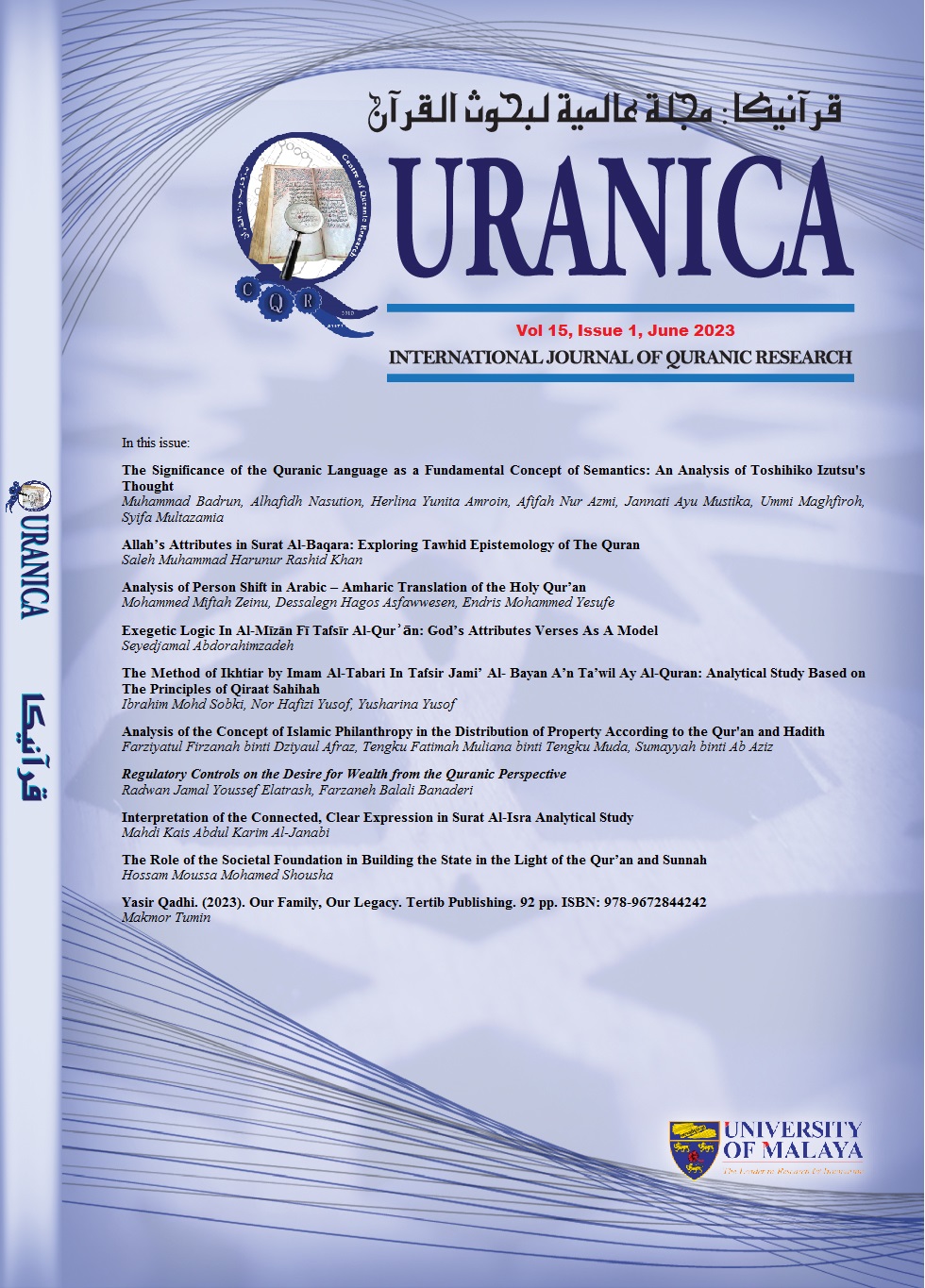Allah’s Attributes in Surat Al-Baqara: Exploring Tawhid Epistemology of The Quran
Main Article Content
Abstract
The main objective of this article is to explore tawhid epistemology (knowledge of Absolute Monotheism) of the Quran, by interpreting meanings and contexts of samples of Allah’s attributes in Surat al-Baqara. Research methods include: (a) content analysis (mostly frequency counts) of original Arabic words dealing with different types of tawhid, especially different iterations of Allah’s attributes as a component of tawhid, and (b) context analysis of major themes in which Allah’s attributes are embedded in sample passages (consecutive verses). The results show that although Allah’s attributes account for only 6% of the total words in Surat al-Baqara, nearly one-third of 286 verses of the sura end with one or more of twenty-one attributes of Allah (out of more than 100 such attributes in the Quran). The most frequent attribute in Surat al-Baqara may be approximated as “Allah knows everything” (with varied iterations of this expression in Arabic), which appears in 33 verses (n = 33), compared to its frequency of at least 95 in the entire Quran. Other frequent attributes include “Allah’s Capability of doing anything” (n =13) and “Allah as the Accepter of Repentance, Most Merciful” (n = 12). The study supports our assumption that most often Allah’s attributes appear at the end of a verse reinforcing a divine message/s in the verse or complementing a broader message (narrative) in a longer passage. Out of at least seventeen such passages in Surat al-Baqara, the Creationist doctrine, attributing origin of the universe and human life to Allah’s Creation, appears to be a continuing theme in several other suras of the Quran.
Downloads
Article Details
Disclaimer
QURANICA makes every effort to ensure the accuracy of all its contents. However, opinions, discussions, views and recommendations are expressed in this journal do not necessarily reflect the official policy of QURANICA or views of its editors or publishers. Therefore, QURANICA and its publishers will not be liable for any controversy may be arisen. The journal reserves the right, at its sole discretion, to change its terms and conditions of publications.
Copyright
It is a condition of publication that manuscript submitted to the journal have not been published, accepted for publication, nor simultaneously submitted for publication elsewhere. By submitting a manuscript, the author(s) agrees that copyright for the article is transferred to the publisher, if and when the manuscript is accepted for publication.
